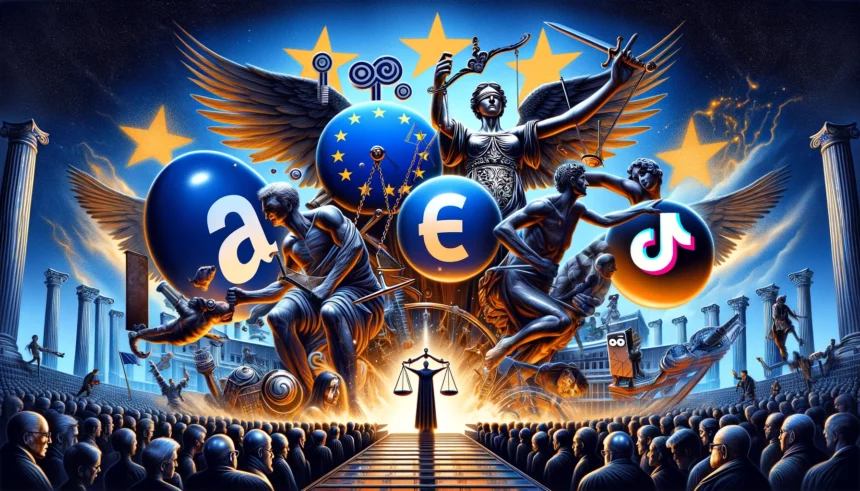As the world continues to grapple with the remnants of history and the surge of digital innovation, recent discussions and legal battles highlight the ongoing struggle to balance progress with preservation. Reflecting on the past, a recent debate considers the Holocaust’s place in history, emphasizing its inseparable connection to the turmoil of World War II. This discourse underscores the critical role of context in understanding historical events, revealing how the war provided a grim backdrop for unimaginable atrocities. This reflection on history parallels today’s challenges in the digital realm, where the battle is not over territories but over information, privacy, and power.
In the digital arena, the European Union’s enforcement of the Digital Services Act (DSA) and the Digital Markets Act (DMA) marks a significant step towards regulating Big Tech’s sprawling influence. However, these new regulations have not gone unchallenged. Companies like Amazon, Meta, TikTok, and Apple have launched legal offensives against the European Commission, seeking to dilute the impact of these groundbreaking laws. Their actions, ranging from lawsuits to strategic compliance that skirts the spirit of the legislation, reveal a concerted effort to maintain their dominance over the digital landscape.
Amazon’s challenge against the DSA, arguing its e-commerce operations fall outside the scope of the act, alongside Meta and TikTok’s contestation of supervisory fees, exemplify the industry’s reluctance to accept tighter oversight. Apple’s approach, employing ‘malicious compliance’ to circumvent the DMA’s intentions, further demonstrates the tech giants’ resistance to opening up their platforms to competition and user autonomy.
These battles are not merely legal skirmishes but reflect a deeper conflict over the future of the digital ecosystem. As the European Commission stands firm against Big Tech’s attempts to undermine these new regulations, the support from civil society and digital rights organizations underscores the public’s demand for accountability and fairness in the digital domain.
Parallel to historical reflections on the Holocaust and World War II, today’s digital challenges emphasize the importance of understanding the context and consequences of power dynamics, whether on the battlefield or in the bytes that define our digital lives. As we navigate these digital battlegrounds, the lessons of the past remind us of the stakes involved in shaping a future that honors both our history and our rights in the digital age.
















